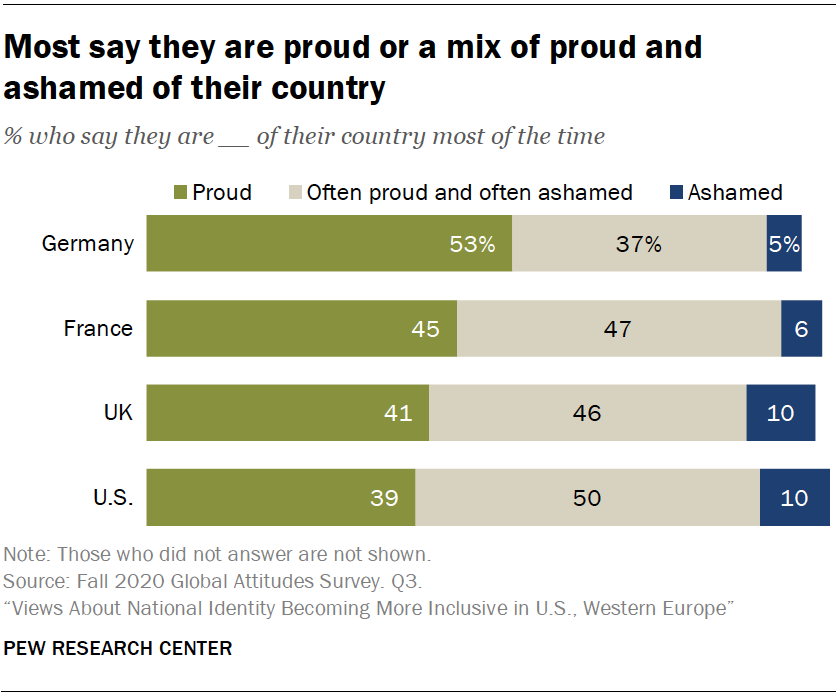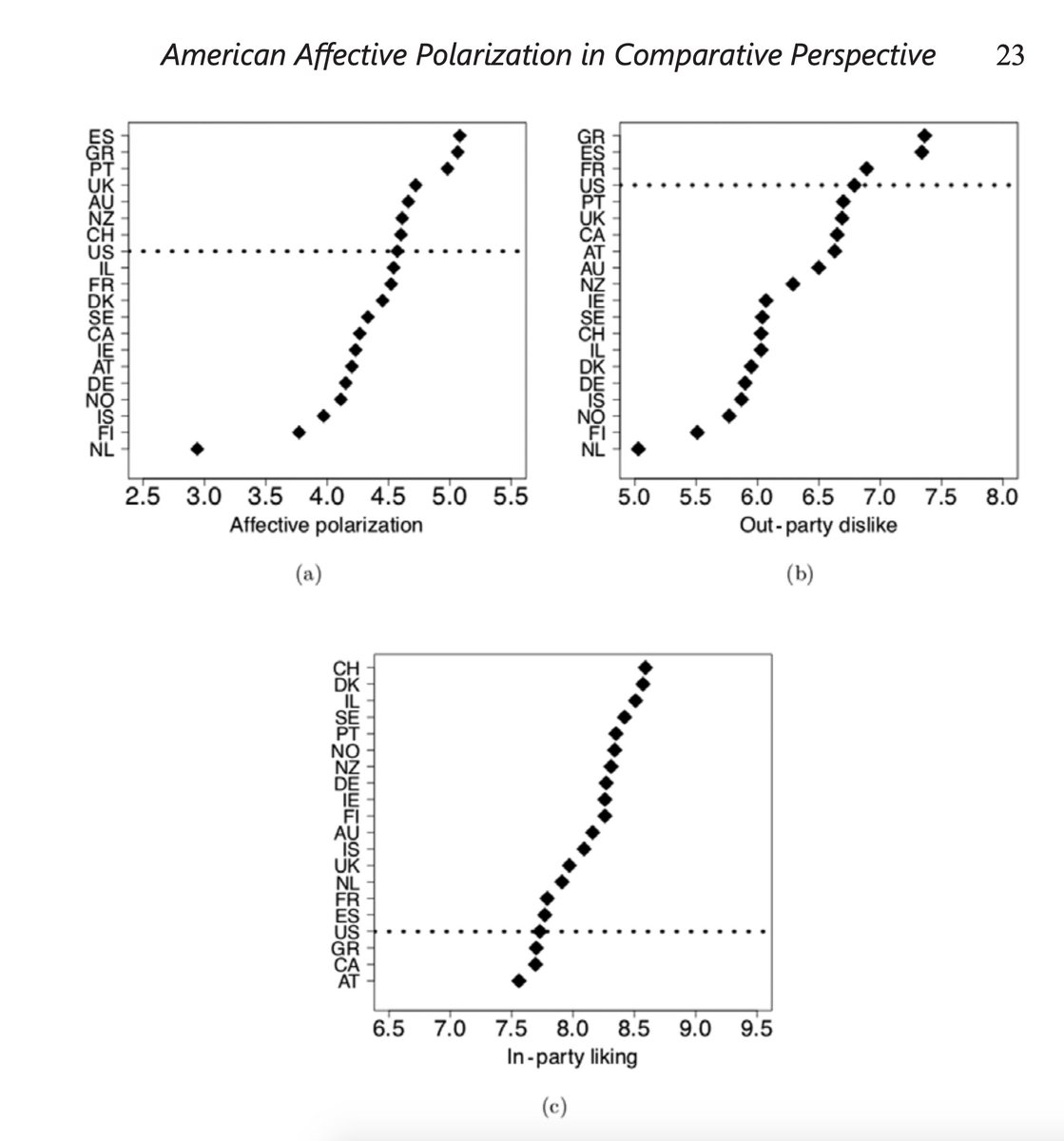
This is an absolutely stunning little graph, tucked away in a new @pewglobal piece.
Let me explain why... #shortthread
Let me explain why... #shortthread

During the second half of the 20th century, Germans were the least "proud" Europeans, for obvious reasons (Holocaust trauma). Only Belgians came close to rivaling them.
Not only have Germans become more patriotic -- as consequence of time and unification -- but many other countries have become less proud.
Of course, these four countries are very specific. Traditionally, US always scored extremely high on the "proud" question, as did France. UK was at average levels, if I remember correctly, which were nevertheless very high.
So what explains these remarkable numbers? I think there are two main factors, one methodological and one political.
On the methodological one, the option "often proud and often ashamed" is (relatively) new. If this would have been included in late 20th century, numbers of "proud" would undoubtedly have been much lower.
On the political one, France, UK and US are hyper-polarized by cultural wars, which use highly emotional languages, at the individual and aggregate (i.e. state) level, including shame.
Despite sensationalist accounts in Anglo-Saxon media, Germany is not polarized and the political debate and struggle is still largely between liberal democratic parties who differ in terms of policies not morals.
One of most interesting things about the (far) right in the early 21st century is how negative they are about their country. Unfortunately, this has sometimes pushed the center right to a misguided "patriotic" position. #TheEnd
• • •
Missing some Tweet in this thread? You can try to
force a refresh









